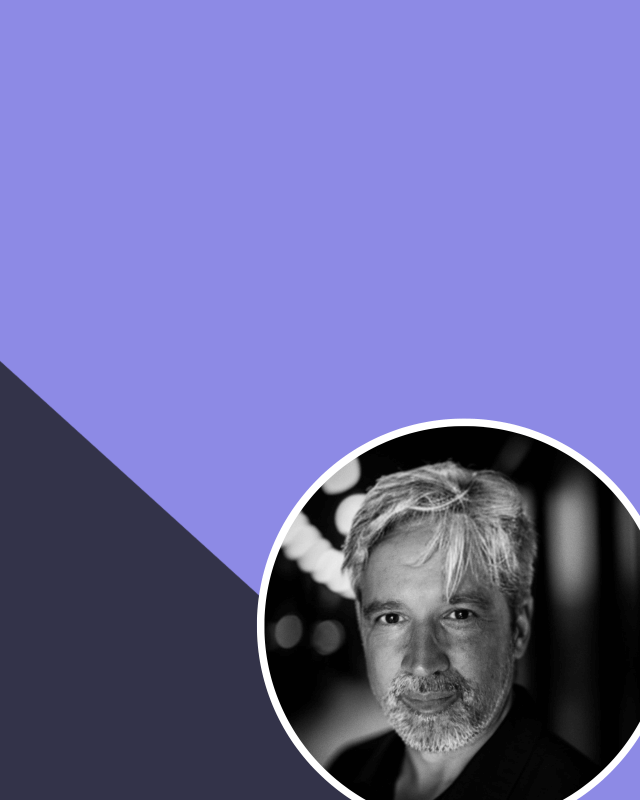
Advisor Insights
Founder Advisory: Company Creation with Entrepreneurs
Advisory Board Business Case with Louis Gagnon
Advisor Insights
Published 18 September 2024
The goal of advisory boards is end up with an environment where you have a contest of ideas and people feel safe and vulnerable to do that. When it’s working well, that contest of ideas comes to the fore and people forget about process, but you need a rigorous process to underpin it.
Paul Healey‘s experience spans financial services, real estate, higher education and utilities, leading large organisations through significant cultural change, major business process enhancements and transformational projects. In 2022, Paul helped establish the Quinn Johansson Family Office where he currently serves as CEO on a part-time basis, implementing ‘fit for purpose’ governance structures and strategies to preserve and grow the significant 1st generation wealth built from the Quintessential Equity business.
Paul’s portfolio also includes serving as Advisory Board Chair for Executive Interim Management, an Independent Board Advisor to Ark Capital Funds Limited and a Director of Peak Executive Coaching. An advocate for best practice and continuing professional development, Paul is qualified as a Chartered Accountant, holds a Master of Business in Accounting, together with the Certified Chair™ and GAICD qualification and membership of the Institute of Executive Coaching & Leadership, IECL.
Paul joined Advisory Board Centre founder Louise Broekman for this Advisor Insights conversation to explore the importance of process, creating the right environment, and bringing a strategic, thoughtful approach to serving on advisory boards.
Louise Broekman:
Welcome to the Advisor Insights Interviews. My name is Louise Broekman. I’m the founder of the Advisory Board Centre and I’m here with my esteemed colleague, Paul Healey, a Certified Chair™ based here in Australia. Welcome, Paul.
Paul Healey:
Thank you, Louise. Pleasure to be here.
Louise Broekman:
I’m looking forward to having this conversation with you about your varying experiences in advisory boards, but before we do, I’d love to just have a snapshot about your background.
Paul Healey:
Sure. So I’ve had quite a varied career as a CFO and in superannuation in particular, and probably about five years ago stepped out of that world into advisory space and then more recently into advisory boards specifically. So that’s been my journey.
Louise Broekman:
It’s very, in a very quick summary!
Paul Healey:
Very quick summary, but that’s a number of years condensed into something quite similar. But I really enjoy the advisory space and that’s why I’ve ended up doing the Certified Chair™ program to get a really solid grounding in the methods and understanding.
Louise Broekman:
Okay, thank you. So let’s talk about the world of advisory boards, how you got started.
Paul Healey:
Originally, I got started when some people I’d worked with in the past were doing new ventures and they said, oh, Paul, can you come along and help us? And then that sort of progressed or morphed into, well, can you set up an advisory board? And to which I responded, I’m not sure what that is! I went and did the formal program, set up my chair offering and that has just grown from there. So it’s really given me a rigor to conduct work I was already doing with my clients in a more formal way. And I really enjoy it. It’s a good space to be in.
Louise Broekman:
I deeply rewarding and challenging at the same time. Absolutely. For you, Paul, while you’ve been involved with advisory boards and particularly with chairing them, what’s worked for you and perhaps what’s not worked well?
Paul Healey:
Yeah, I think what’s worked is it’s, it’s not really rocket science. Having a very structured approach, having clarity on why you’re doing it and the purpose. Having simple things like the papers issued early and creating a really safe environment for the advisory board members and the enterprise you’re working with. And that takes skill and patience and a bit of self-reflection, but to really end up with an environment where you have a contest of ideas and people feel safe and vulnerable to do that. And I think when it’s working, that contest of ideas comes to the fore and people forget about process, but you need a rigorous process to underpin it or put the bedrock under it. I think that’s been really helpful. The other thing I think is helpful is to have conversations that build on each other. So not to have the sharing of war stories if you like, around the table, but ones that build on each other and having other members of the advisory board that do that and understand that nuance is really helpful because it opens ideas from anywhere really. And some real gems can come out of that, which is great.
Louise Broekman:
And it really demonstrates that people are thinking together, doesn’t it?
Paul Healey:
Yeah, there’s a togetherness of that. And I think the third one for me is slowing the founders down. So they’re normally used to going at warp speed and the ability to actually get them to step out of the traffic and take a breath and slow down and sit in a bit of fog or malaise for a while, it is against another skill and it’s really hard for some, it’s dragged kicking and screaming literally or almost literally. But it’s really helpful. It removes a sense of rush and a sense of, well, let’s really unpack this and deal with it well, and that’s quite rare generally in my experience, used to going very fast. And sometimes that’s a bit superficial, whereas the perennially difficult issues to solve take time and take thought and consideration. It’s not obvious,
Louise Broekman:
Which means you need to slow the conversation down.
Paul Healey:
Exactly, exactly. So that slowing down to speed up I’ve found quite helpful.
Louise Broekman:
That’s great. And being involved in the advisory board sector now, Paul, for a while, what do you see is the future of the advisory board sector?
Paul Healey:
I think there’s a great future. You’ve got corporates, you’ve got this perpetual change and a speeding up of change. We always had change, but it seems to be going faster and faster. So the ability to combine and recombine things is rapidly speeding up. AI is a good example. It’s hard to keep up with it. So there’s this sense where we’re not very good at dealing with change. We’ve never been good at dealing with change. Corporates are okay as long as they stay in their lane. Government’s probably not so good on the implementation side. So somewhere in between. There’s a role for advisory boards to really challenge the quality of solutions and the quality of how you monitor them and how you execute them. And so no one’s really in that space, corporates to step outside. Their knitting tend to blow up. History will tell us, governments tend to struggle while may come up with visionary ideas, tend to struggle to execute them.
So somewhere in that liminal space I like to call it, is the role. And it’s across a whole range of sectors. It could be family office as you go through the transition of wealth from one generation to the other, which is massive. Could be in a regulatory sense in financial services as royal commissions have found really big holes there. The same for the aged care sector. So all these areas that are undergoing monumental change and everyone’s struggling with it, that’s where I think there’s a really significant role for advisory boards in whatever form that takes. And it’ll be different for the different settings, but it’s to provide rigor around really critiquing solutions. How do we do it? How do we make it stick?
Louise Broekman:
And informing leaders.
Paul Healey:
Informing leaders. Absolutely.
Louise Broekman:
Thank you. And having tips. You are an advisory board practitioner now for a while and you’ve been working on many advisory boards and you’ve got people entering to this space for the first time. What tips do you have?
Paul Healey:
I think the first one would be to really know where you shine. So really be prepared to go on a journey of understanding what are you good at, how do you know you’re good at it? Is there really testing that and sitting in that fog for a while and then doing an exercise? Well, are those skills and attributes relevant in the advisory board world? So it’s a bit cathartic and a bit scary, but I think it’s really helpful because then you know where you can make difference. I think the second one for me is this sense of chemistry. So it’s really important that you genuinely want to help the organization or the institution you’re going to work with. So do you have that passion and are you really interested in it? And then the third one for me is to think in terms of decades. So think what are you really trying to build here? What are you really trying to give back? And to take that almost a decade view rather than sort of the next three months or something so that you can make a difference in the long term. And I think that’s because this is the sort of environment it is. You may be on an advisory board for two years and then you may not be relevant for it, but over a 10 year window you’ve done five or six different things. That’s an amazing contribution.
Louise Broekman:
That’s a really nice way to view it because you do take it with you for the rest of your life, don’t you? Yeah. Paul, I really appreciate you taking the time to share that with us today. And thank you for the good work that you’re doing in advisory board care.
